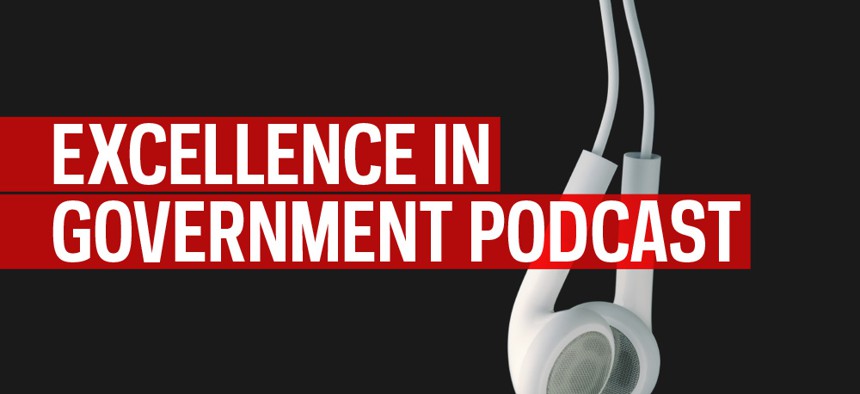Generational Divide? What Generational Divide?
Young leaders span the ages to solve government's challenges.
Listen to the story:
Download this episode | Subscribe on iTunes
The specter of an impending retirement wave has loomed over the federal government for years. As the baby boom generation ages, the fear that there will be a personnel shortage continues to grow. It is a recurring theme on Government Executive and Excellence in Government podcast interviews.
As the workforce shifts to a younger demographic, the millennial generation will fill the gaps. But young employees will have to build their institutional knowledge and management skills. Intergenerational conversations are integral to guarding against brain drain and other challenges government will face in the coming years. Some agencies have programs to foster those connections, but a lot of feds rely on Young Government Leaders for help.
Based in Washington with local chapters nationwide, YGL hosts networking events and serves as a community for young public servants. The organization produces the Excellence in Government "How I Lead" series.
Lynnie Martin is YGL's public relations director, and Tyler Robinson is chairman of the board. At their day jobs, Martin is a training specialist at the Homeland Security Department and Robinson is the portfolio risk officer at the Export Import Bank of the United States and a former Presidential Management Fellow.
During an Excellence in Government podcast, Robinson said YGL's mentoring program has been effective in making younger feds more comfortable at their agencies. "Those in more senior roles have been very willing to help," he said. "There is a strong desire to impart wisdom that someone's gained over a 20- or 30-year career to someone who is fresh out of school."
When asked whether a generation gap could hamstring teams within agencies, Martin and Robinson said they had not experienced a lot of hurdles between themselves and older co-workers. " From my experience, personally, it's having a manager that is very supportive of coming up with different ways of doing things," Robinson said.
Having a variety of perspectives is a big factor in tackling government's challenges. While millennials cite innovation as a key trait in a job they'd pursue, Martin says youth and experience work together to solve those problems.
"Government does a good job of trying to bring in people's ideas from many different levels, different experiences and different generations," Martin said.
Both Martin and Robinson said millennials communicate differently, noting their ease with new technology in the workplace. According to a recent Deloitte survey of millennials, collaboration is a top priority amoung young workers and technology is the key. " The technology changes during the last 10 years have really helped us to be more collaborative," Martin said.
When asked what's in store for the workforce of the future, Robinson said it would be very hard to predict. "Forecasting is always a very tricky endeavor," he said. But working with older government leaders has given him an appreciation for the challenges ahead.
"As we gain more leadership roles, we'll find that it's much more difficult than we currently think," Robinson said. "But technology and telework can certainly aide in that regard."








